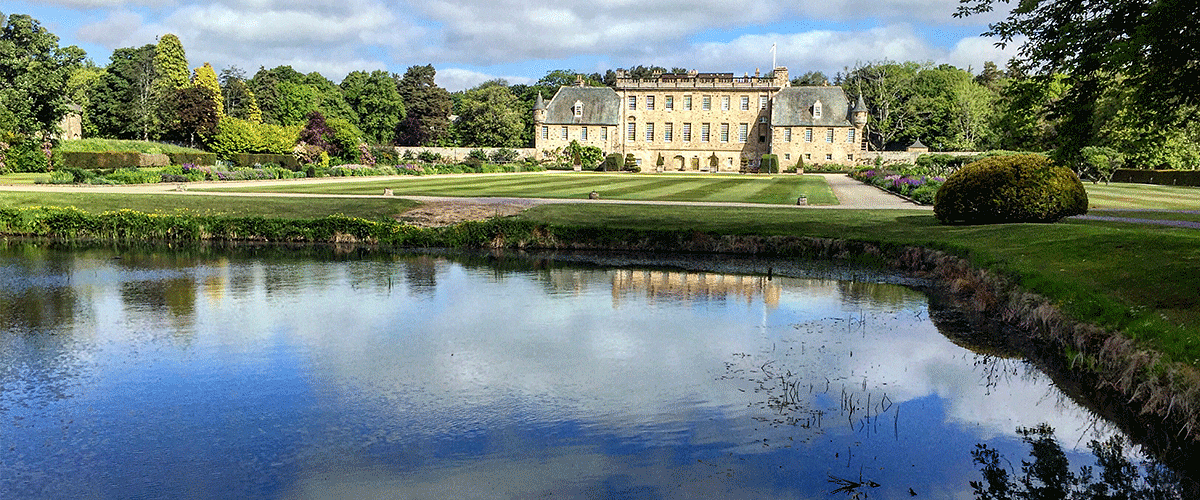Learning to listen at Gordonstoun
Learning to listen at Gordonstoun
By Lisa Kerr, Principal at Gordonstoun

.jpg)
A lesson for the leaders of tomorrow.
Regardless of your view of Brexit, the debate around it has all too often been characterised by bad tempered and divisive exchanges.
The aggressive, confrontational positions adopted by political leaders has led to voters becoming disillusioned and disengaged with the political system.
It’s an approach which also runs contrary to the ethos at Gordonstoun, which was founded by Kurt Hahn, a Jew who fled Germany under persecution from the Nazis, and I believe it serves as a poor example to our young people of how to influence and engage.
Like many people, I have been appalled by the increasingly abusive tone surrounding the Brexit debate and I’m convinced of the need to teach the leaders of tomorrow that empathy and understanding are the keys to find solutions with which everyone can feel settled; it is fine to disagree but there are better ways to express your opinion which will help all parties to reach a successful resolution.
At Gordonstoun we have always welcomed students from diverse backgrounds and we strongly believe that it is possible for people with different perspectives to reach a common understanding.
The Gordonstoun Dialogue Society, set up five years ago, is, today, an antidote to the hostile nature of political debate we are witnessing around the world. It equips our students with the skills to better understand the positions of others and to broker areas of agreement.
Dialogue is a structured form of communication that helps us address the complex problems and diverse issues that we are facing in today’s society. Unlike debate where the goal is to convince others of your position, dialogue focuses on listening and a willingness to re-evaluate our own views.
Recent political turmoil has prompted us to want to share our dialogue expertise, and we recently hosted a Dialogue Symposium ‘Learning to Listen’ at Gordonstoun at which pupils from a wide variety of backgrounds from around the UK came together to learn how to resolve conflict. The symposium helped students develop their listening and understanding skills in order to negotiate better outcomes.
Our skilled facilitators helped participants to explore issues more deeply and to get below the surface positions to examine the values, needs and experiences that underpin them. Pupils were urged not to follow the example set by politicians during Brexit but to build key skills of: active listening, empathy, intelligent questions, drawing on personal experience and self- awareness.
Our three day ‘Learning to Listen’ event was led by Gordonstoun teacher James Smith who has a Masters degree in Peace and Conflict and was part of the UN peacekeeping mission to Haiti and assisted by other specially trained teachers.
Mr Smith emphasised to the students the art of dialogue is very different to the art of debate. It is not about winning an argument but about understanding your opponent’s point of view so that you can reach the best outcome for all. This requires listening and empathy, essential skills which will help these students throughout their lives, whether or not they choose to become the politicians of the future.
Although we have been teaching dialogue to our own students for several years now we were keen to share the practice more widely and were delighted that schools from across the country joined us, evidence that there is growing demand for a different and refreshing approach. A variety of schools from England, Scotland and Wales from both the independent and state sector attended the event and each one was asked to nominate two Sixth Formers and a teacher.
Sixteen year old Rachel Thomson from Govan High School was one of the many students who spoke eloquently at the symposium. She said the event provided her with valuable life skills which will help her in the world of business when it comes to discussion and negotiations.
Gordonstoun can’t change the nature of the Brexit debate but through our ‘Learning To Listen’ dialogue we can help shape the leaders of the future.